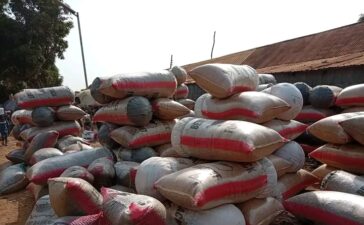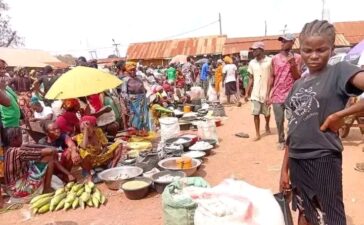Join our WhatsApp channel HERE for the latest Benue news and updates!
In a chilling revelation that has sent shockwaves through Benue State, an anti-trafficking advocate has disclosed receiving reports of no fewer than 20 confirmed cases of human trafficking from Benue to Libya within just 48 hours. The victims—all girls aged 14 to 18—were lured under false promises, only to vanish into a nightmare of exploitation abroad. But the crisis doesn’t stop at Libya’s borders. The same source reports multiple additional cases involving trafficking from Benue to Mali, Ivory Coast, Ghana, and other African nations, painting a grim picture of a growing underground network preying on the state’s most vulnerable.
Many families, exhausted after fruitless searches, have presumed their daughters dead and ceased looking. Yet hope flickers in the darkness. The advocate, working with a dedicated team in Libya, has begun tracing victims whose families provided reachable phone contacts. “Now that I’ve [a] good team in Libya, we promise to do [our] best,” the post reads, pledging relentless efforts to locate the girls and, where possible, bring them home.
Critical support is flowing in from key organizations. The Association of Tiv in Libya, NAPTIP Nigeria, and Yakubu Oyiza Hope are collaborating with speed and determination. “Thank you… for your quick response and readiness to help,” the advocate wrote, singling out these groups for their immediate action.
Special recognition was reserved for the Benue State Government under Governor Fr. Hyacinth Iormem Alia. Through the Commissioner for Humanitarian Affairs and Disaster Management, Hon. Emmanuel Terungwa Iorbee, the administration has provided maximum support, enabling coordination, intelligence sharing, and logistical backing for rescue operations.
This surge in trafficking cases exposes a sophisticated and ruthless syndicate targeting Benue’s youth, particularly girls from rural and low-income communities. False promises of jobs, education, or marriage abroad serve as bait, only for victims to face forced labor, sexual exploitation, or worse upon arrival. The fact that over 20 cases surfaced in just two days suggests the true scale may be far greater—many go unreported due to stigma, fear, or lack of access to authorities.
Governor Alia’s swift response through Hon. Iorbee signals a government unwilling to stand idle. But this crisis demands more than rescue—it requires prevention. Community sensitization, stricter border monitoring, economic empowerment for at-risk families, and aggressive prosecution of traffickers must become priorities.
As rescue efforts intensify in Libya and beyond, one thing is clear: the safety of Benue’s daughters is a collective responsibility. Parents, traditional rulers, religious leaders, and civil society must remain vigilant. Every missing child is a call to action.
To the brave girls enduring unimaginable hardship—hold on. Help is coming. And to those fighting to bring them home: Benue stands with you.






















